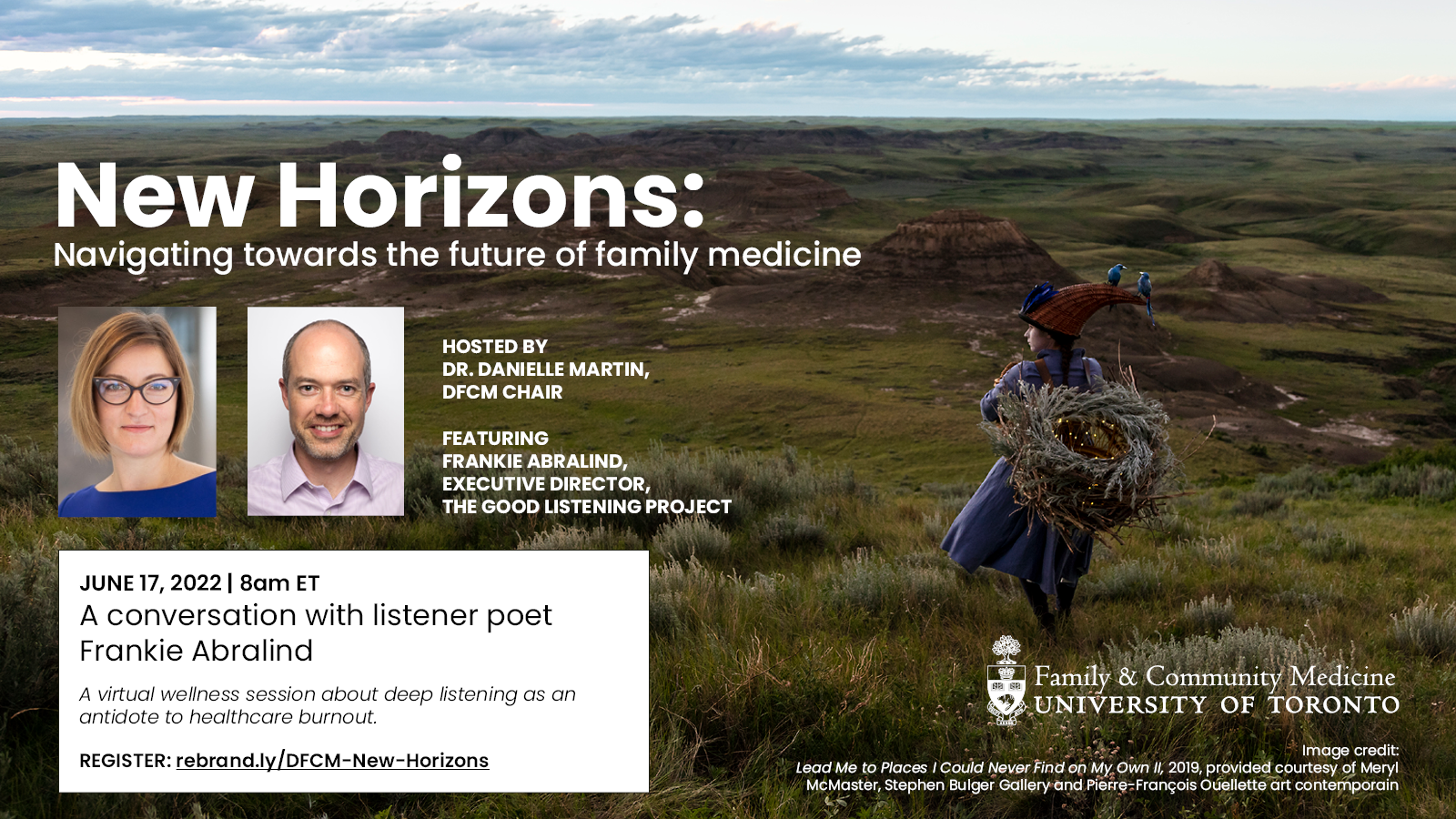[New Horizons Speaker Series] Good listening is healing: A remedy for burnout with listener poet Frankie Abralind
New Horizons is a speaker series hosted by Dr. Danielle Martin, Chair of the University of Toronto Department of Family and Community Medicine. This conversation is the second of the series.
In this wellness session, hear from Frankie Abralind, artist, listener poet and co-founder of The Good Listening Project as we discuss the power of deep listening in primary care and family medicine.
The answers to healthcare worker burnout are complex – but one dimension that can help is connecting with other parts of ourselves. The arts, poetry, deep listening and feeling understood: These can be some of the much-needed antidotes to the fatigue and stress felt so strongly in our communities.
Why listening? Deep listening not only supports the stress response cycle, but the ripple effect of good listening fundamentally shifts how it feels to work and receive care at a hospital.
About Frankie Abralind
Frankie Abralind began experimenting with this work when he was lead designer at Johns Hopkins Sibley Memorial Hospital's Innovation Hub. For years on the weekends, he'd been listening to and writing poems for strangers on the streets of Washington, D.C., under a "Free Custom Poetry" banner. Frankie relishes the overlap of human-centered design with listener poet work: listening to uncover truths and help people feel understood (and help them understand themselves). Frankie lives in Washington, D.C., with his wife and six typewriters.
About the speaker series
"New Horizons: Navigating towards the future of family medicine" is hosted by Dr. Danielle Martin, Chair of the University of Toronto Department of Family and Community Medicine, the largest academic department of family medicine in the world.
As we emerge from the COVID-19 pandemic and look toward the future, DFCM has an opportunity to help shape the health system in Canada. Our department aspires to dream big about the potential of primary care, family medicine, and the role of the university in our society and our communities. This requires us to learn across disciplines and to take inspiration from the broadest possible range of fields – the arts, public health, community activism, the social sciences and more.
In each session, a wise interprofessional colleague will provide a fresh perspective on the role of family physicians in a changing world and challenge us to consider what a community responsive department of family medicine should be aiming for.
For more information on future sessions in the New Horizons series, visit our landing page at rebrand.ly/DFCM-New-Horizons

